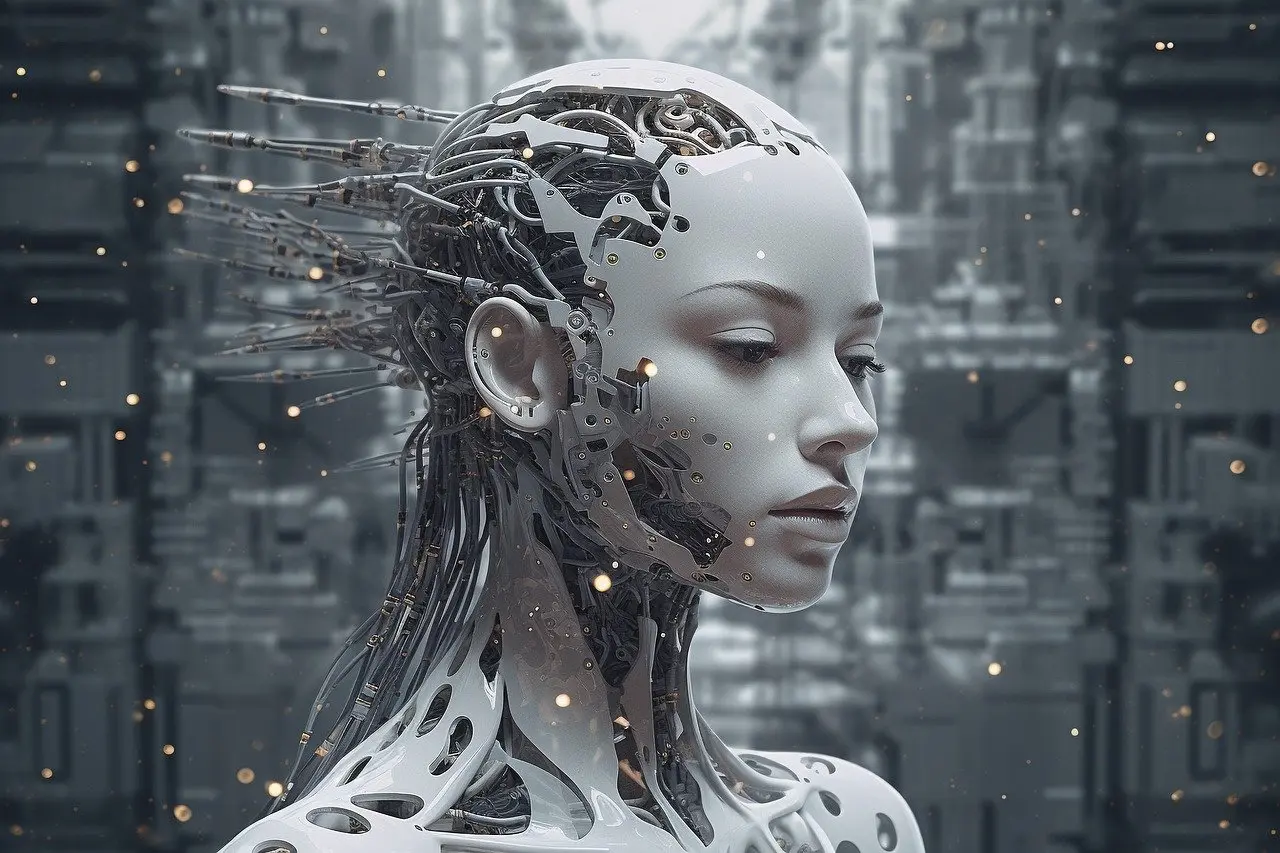Image by Alexandra_Koch from Pixabay
Artificial intelligence (AI) is a branch of computer science that focuses on creating intelligent machines that can perform tasks that typically require human intelligence. It’s like giving computers the ability to think and learn like humans, but with a lot more processing power!
Here’s a breakdown of what AI is all about:
- Simulating Human Intelligence: AI aims to create machines that can understand, learn, and solve problems like humans do. This includes tasks like:
- Learning from experience: AI systems can analyze vast amounts of data and learn from it, just like humans learn from their experiences.
- Understanding natural language: AI can process and understand human language, allowing it to communicate with us through text or voice.
- Recognizing patterns: AI can identify patterns and trends in data, which is useful for making predictions and decisions.
- Solving problems: AI can use its knowledge and reasoning abilities to solve complex problems, from playing games to diagnosing diseases.
- Different Types of AI: There are different types of AI, each with its own capabilities:
- Narrow AI (Weak AI): This is the most common type of AI, designed to perform specific tasks. Examples include virtual assistants like Siri and Alexa, spam filters, and self-driving cars.
- General AI (Strong AI): This is a theoretical type of AI that would have the same level of intelligence as a human, capable of learning and performing any task a human can. We haven’t achieved this yet, but it’s a goal for future AI research.
- Super AI: This is a hypothetical type of AI that would surpass human intelligence in all aspects. It’s a topic of much debate and speculation, with some experts believing it could be a positive force, while others worry about its potential risks.
- AI in Action: AI is already impacting our lives in many ways:
- Personalized Recommendations: AI powers the recommendations you see on streaming services, shopping websites, and social media.
- Medical Diagnosis: AI is being used to help doctors diagnose diseases more accurately and efficiently.
- Financial Trading: AI algorithms are used to make high-speed trading decisions in the stock market.
- Customer Service: AI-powered chatbots are becoming increasingly common for answering customer questions and providing support.
Think of it this way: AI is like a powerful tool that can help us solve problems, make better decisions, and improve our lives. It’s still in its early stages of development, but it has the potential to revolutionize many aspects of our world.
References
- What is Artificial Intelligence (AI)? | IBM Home Topics
- What is AI? | Definition from TechTarget
- What is (AI) Artificial Intelligence? | Online Master of Engineering | University of Illinois Chicago
- Artificial intelligence (AI) – Britannica
- Artificial intelligence (AI) is the theory and development of computer systems capable of performing tasks that historically required human …
Explore More
- What are some of the ethical concerns surrounding AI?
- How is AI being used in different industries?
- What are the potential benefits and risks of AI?
- What are some of the latest advancements in AI research?
- How can I learn more about AI?
